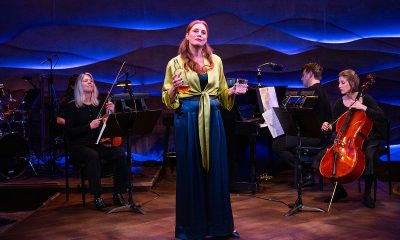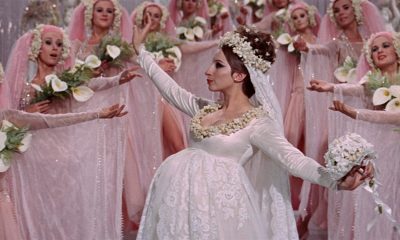Theater
‘Gigi’ director speaks out
Broadway-bound production balances old and new
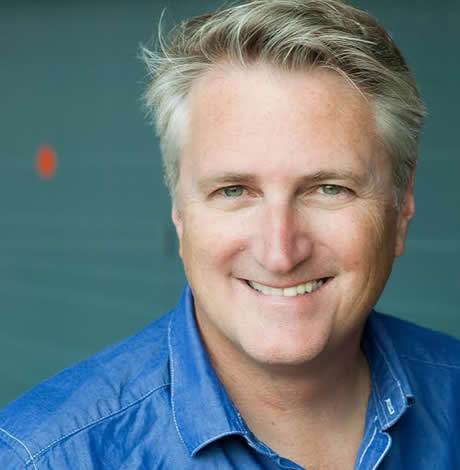
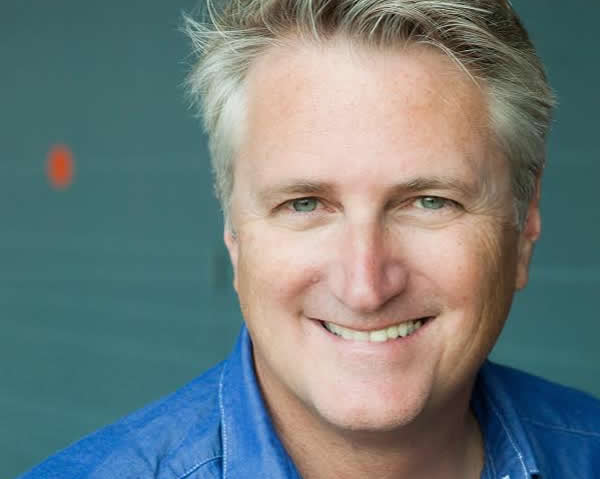
Mounting ‘Gigi’ presented unexpected challenges for director Eric Schaeffer. (Photo courtesy Signature)
‘Gigi’
Through Feb. 12
The Kennedy Center
$45-150
800-444-1324
At first the idea of remounting the musical “Gigi” might sound a little dusty. But director Eric Schaeffer guarantees that his reimagined production featuring Hollywood starlet Vanessa Hudgens in the title role is anything but.
“It doesn’t feel like a revival and that’s exactly what we wanted,” says the out director. “We want it to feel fresh and alive, a new musical inhabited by familiar characters that the audience knows and loves.”
Collette’s “Gigi” began as a novella about a Parisian girl whose grandmother and aunt are grooming her to become a career courtesan; but when she and rich playboy Gaston fall in love, things work out differently than planned. The story was first adapted as a play for the Broadway stage in 1951 starring then-unknown Audrey Hepburn. Later the famed team of lyricist and librettist Alan Jay Lerner and composer Frederick Loewe morphed the source material into a hugely successful MGM 1958 musical directed by Vincente Minnelli. In 1973, a less-popular musical version using the Lerner and Loewe score ran for just a few months on Broadway.
Today, the revamped production playing at the Kennedy Center is written by British screenwriter Heidi Thomas best known for the BBC’s popular post-World War II drama “Call the Midwife.” This “Gigi” is new in many ways, yet features memorable tunes from the movie and stage score including “Paris Is Paris Again,” “She’s Not Thinking of Me” and “The Night They Invented Champagne.”
Thomas’ script puts the focus back on Gigi, says Schaeffer. When not changing costumes, Hudgens is on stage throughout the entire show. Even the scenes when Gaston (here played by handsome Corey Cott) is making the rounds of Paris balls, a jealous Gigi can be seen off to the side scanning the society columns for news of her beloved.
Also, the rewrite eliminates what Schaeffer refers to as “the perv factor.” No longer is Gaston twice Gigi’s age. Now she and he are about 18 and 25 respectively. Also, the play’s “Thank Heaven for Little Girls,” a salute to girls’ burgeoning sexuality traditionally sung as an elderly roué, now go to Gigi’s grandmother Mamita (Broadway’s Victoria Clark) and Aunt Alicia (Dee Hoty).
“Heidi is a great collaborator,” he says. “She praises my transitions, and is amazed how I can make a musical flow. And I love her writing. As anyone who has seen Thomas’ television work knows. She is able to write in a way that feels period and contemporary at once, not an easy feat.”
Initially, Schaeffer and the “Gigi” producers wanted to cast an unknown in the leading role and make a star. But it didn’t work out that way.
Toward the end of two weeks of intense auditioning in New York, Amanda Hudgens (famous for Disney’s “High School Musical”) came in, Schaeffer recalls.
“We were impressed from the start because she had learned lines and the songs. Sometimes Hollywood people refuse to audition, much less come so prepared. By the end of the audition I said, ‘That’s our Gigi. Let’s hire her now.’ Vanessa has a certain undefinable quality that makes her perfect for the role.”
Romance and scandal were Collette’s stock and trade. Married several times, she had affairs with men and women. Her early books shocked readers. In her youth she performed a music hall act that included a same sex kiss. But when she wrote “Gigi” at the close of World War II, Collette was aging and things were bleak in France. Perhaps for these reasons, she sets the story in happier a time, the Belle Epoque Paris of her youth.
It’s Schaeffer’s first foray in the era and he strived to totally immerse himself. He and his partner spent some time in the city of light investigating Collette’s haunts. But he credits the production’s design team — Derek McLane (scenic), Natasha Katz (lighting) and Catherine Zuber (costumes) — with creating an exquisite, transporting experience.
“It feels like you’re in Paris. During previews when the curtain went up, audiences instantly applauded. That’s a good feeling. You know they want to go there.”
While Schaeffer is a big fan of the Hollywood musical (he counts “Meet Me in St. Louis” starring Judy Garland and also directed by Minnelli as his favorite), he had never seen “Gigi” when producers asked him to direct the revival two years ago. Once watching, he was immediately charmed by its intimacy and pageantry. He was inspired to bring both quiet and big splashy scenes to the project.
Following the Washington run, “Gigi” moves to Broadway’s Neil Simon Theater. Schaeffer’s extensive directing resume mostly lists Signature Theatre in Arlington where he is artistic director, but also includes the Great White Way (“Follies,” “Million Dollar Quartet”). Does knowing the production is New York-bound raise the stakes?
“Wherever you’re working, you do the best job you can,” he says. “That said, knowing the run show doesn’t end here adds pressure but makes it more exciting. We’ll make changes during the D.C. run. You learn a lot in front of audiences — what works and what doesn’t.”
Theater
Jessica Phillips shines in ‘Penelope,’ a ‘pandemic parable’
Alex Bechtel was inspired to write about loneliness, waiting, separation

‘Penelope’
Thorough April 28
Signature Theatre, the Ark
4200 Campbell Ave, Arlington
$40-$99
Sigtheatre.org
In the new musical “Penelope,” Broadway’s Jessica Phillips gives an unforgettable take on the title role torn from the pages of Homer’s “Odyssey” — more or less. Fortified by bourbon and backed by a Greek chorus of musicians, the character uncharacteristically steps out from the background to share her story surrounding two decades waiting on the island kingdom of Ithica for the return of her absent husband Odysseus.
Sometimes described as a “pandemic parable,” the 70-minute work is based on composer/playwright Alex Bechtel’s personal experience. While separated from his partner during COVID, he was inspired to write about loneliness, waiting, and separation, a subject Phillips was eager to tackle.
An accomplished Broadway actor and mother of two, Phillips, 52, is best known for memorable turns in “Dear Evan Hansen,” “The Scarlet Pimpernel,” “Next to Normal,” and “Priscilla Queen of the Desert.”
Two years ago, she made news for coming out as queer after having long been identified as straight. Parts of the theater scene were caught a bit off guard, but only momentarily. Now, she lives in New York with her partner Chelsea Nachman, a theatrical publicist.“We share the same professional community but in very different roles. I think that makes life easier for us.”
Currently enjoying an extended run at Signature in Arlington where the trees are in bloom, she spares time for a phone interview, starting off with“Perfect timing. I’ve just finished the last song on Beyonce’s ‘Cowboy Carter.’ Let’s talk.”
WASHINGTON BLADE: Increasingly, I hear artists report having been deeply changed by the pandemic. Did that have anything to do with your coming out in 2022?
PHILLIPS: Definitely. During the pandemic, those of us in the arts were in deep crisis, because our industry had collapsed in almost every way. At the same time, that space allowed us to be contemplative about where we were. For me, that period of time gave me the space to both come to terms with and confront those fears about saying who I was, out loud and publicly.
BLADE: Did you have professional concerns?
PHILLIPS: Oh yeah, I was specifically worried about perception. Not so much about being queer but more what it meant to have come out relatively late in life. I had some fear around whether people would take me less seriously.
At the same time, I was nervous about being fully transparent and worried about my privacy and being vulnerable. Like other women I knew, I was more comfortable dealing with traditional societal expectations in America. I grew up with those cultural expectations and thought of myself in those terms for a long time.
BLADE: What changed?
PHILLIPS: What’s been so freeing for me, I can confront how I took on those expectations and say I’m not going to let those determine how I live my life. I get to decide.
BLADE: There’s a lot of wonderful storytelling in “Penelope.” What’s been your way into that?
PHILLIPS: My way of moving through the show is allowing this character to experience all five stages of grief. Humor, slapstick comedy, bargaining, denial. And ultimately acceptance and deep grief.
When an audience is alive and invested, it’s palpable and elevates the storytelling. When an audience is having a thinking rather feeling experience that changes the tone of my storytelling and not in a bad way.
It’s interesting how much they’re a part of everything. It’s really intimate. The audience is just six feet away. It’s a unique experience and we’re on this ride together. And I find this to be a really beautiful and satisfying experience that I’ve not had before.
BLADE: After Signature, what’s next for “Penelope”?
PHILLIPS: That’s the million-dollar question. Hopefully we’ll take it forward to New York or tour it, but that requires willingness and money. I do think there’s a broad audience for this. It’s beautiful, unique, artistic, really emotional, and at the same time possesses an intellectual quality that’s missing from a lot of commercial theater these days.
BLADE: And what’s next for theater?
Phillips: I think one good thing that came out of the pandemic is that people like Alex Bechtel had an opportunity to create. In the next decade we’re going to see the results of that. I think we have some extraordinary things to look forward to. If a work like “Penelope” is any indication, we’re all in for something really good.
Theater
‘Nancy,’ soaked in ‘80s nostalgia, is ‘queer AF’
Mosaic production led by out director Ken-Matt Martin
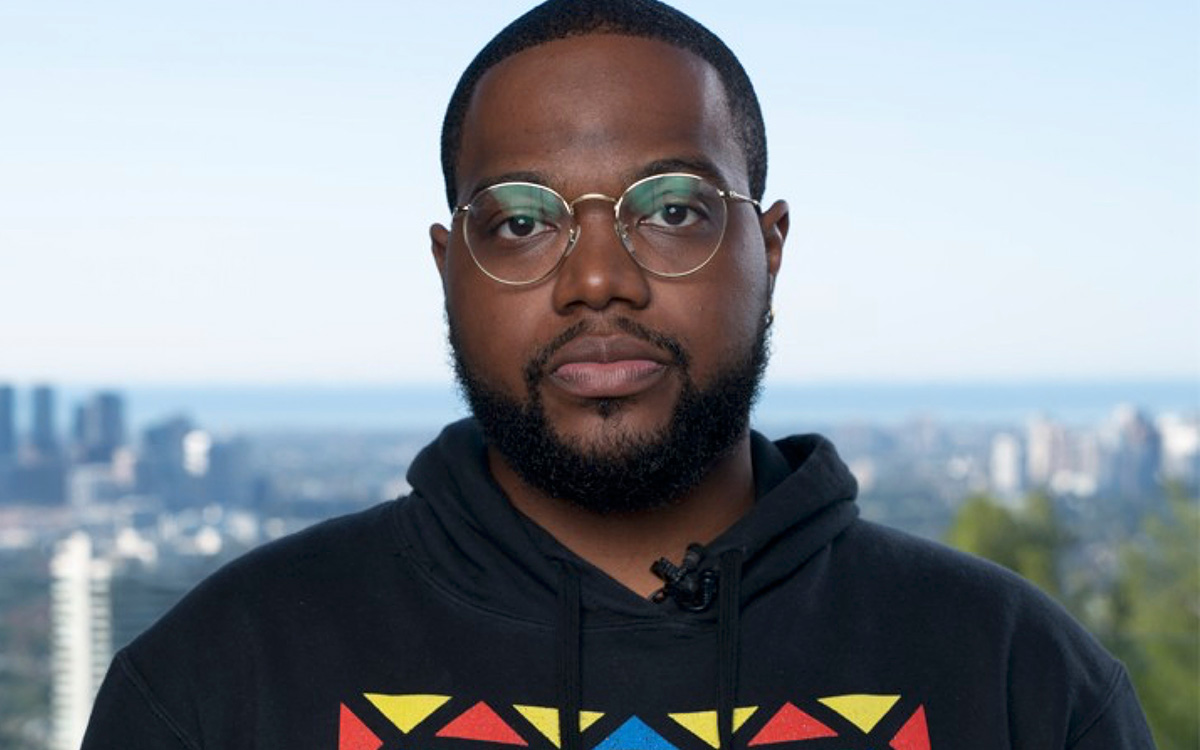
‘Nancy’
Through April 21
Mosaic Theater Company at Atlas Performing Arts Center
1333 H St., N.E.
$53-$70
Mosaictheater.org
Set in 1985, smack dab in the middle of the Reagan years, Rhiana Yazzie’s “Nancy” is totally soaked in nostalgia: shoulder pads, high hair, Van Halen, etc. For some theatergoers, it jogs the memory and for others serves as an introduction to an alien era.
Out director Ken-Matt Martin describes the production (now at Mosaic Theater) as “queer AF.” He continues, “But that’s true with everything I touch. My aesthetics and interests are unapologetically queer. When you first walk into theater, you see a big ass picture of Nancy’s face. The whole play is kind of set on her face.”
Martin, who puts his age as “somewhere over 30,” gives a brief rundown via telephone: “‘Nancy’ places two women on parallel tracks and we get to watch them on a collision course. Esmeralda [Anaseini Katoa], a Navajo mother and advocate determined to improve the condition of her family and reservation. Her story is juxtaposed to that of Nancy Reagan [Lynn Hawley] who’s busy at the White House consulting with society astrologer Joan Quigley to help guide Reagan [Michael Kevin Darnall] and his administration. The women’s worlds come together over Nancy’s direct ancestral connection to Pocahontas.”
The busy storyline also includes a moment surrounding Rock Hudson’s final days, a moment when well-coiffed, clothes-crazy Nancy was presented with the opportunity to make a difference but chose not to.
“And the work doesn’t let Nancy off the hook,” adds Martin. “It’s a full meal of a play.”
Produced in partnership with New Native Theatre based in the Twin Cities, Mosaic’s epic offering, a very D.C. play about ancestry and ambition, almost looks at Ron and Nancy as cartoon characters but isn’t without empathy.
Martin and Yazzie both love satire and absurdity; they enjoy comedy and things that are funny until they’re not. So, the evening shifts in tone as it moves into more serious areas, particularly an exploration of how the ‘80s and Reagan’s failed trickle-down agenda set the stage for many of today’s problems.
The director’s way into theater was as a child actor. After successfully begging his mother to drive him from their native Little Rock, Ark., to a regional Atlanta audition, he booked an appearance on Nickelodeon’s landmark series “All That” and snagged an agent in the process. He continued to act for a time before becoming interested in other facets of showbiz.
After graduating with an MFA in directing from Brown University/Trinity Repertory Company, Martin embarked on a terrifically busy schedule. In addition to freelance directing, he has helmed and helms various prestigious companies as artistic director and managing producer (Pyramid Theatre Company in Des Moines, IA, Victory Gardens Theater in Chicago, and was recently appointed Interim Artistic Director of Baltimore Center Stage and Arkansas Repertory Theatre.)
Currently an itinerant professional (Martin gave up his place in Chicago and hops from job to job where they house him), he says, “It can get a little old, but overall, not bad at all.”
Next up, Martin is directing Olney Theatre’s production “Long Way Down,” the adaptation of a Young Adult novel by DMV native Jason Reynolds. “It’s a big regional tryout that after a limited engagement in Olney leaves for the Apollo Theatre in New York. I’m excited.”
Martin is at home with plays that are tricky to stage, making him a good fit for “Nancy” with its multiple locations, scope, and scale. He’s enjoyed the challenge of the work’s collapsing time lines and the playwright’s tough, complicated, smart, and fast-moving language.
“Perhaps most importantly,” he adds. “Rhiana has entrusted me with the opportunity to tell this very unique story, a story that can resonate with Native people and Native audiences. This part is very new to me as a director.”
Theater
Talented pair of local queer actors tackles ‘Little Shop of Horrors’
Ford’s production features terrific score
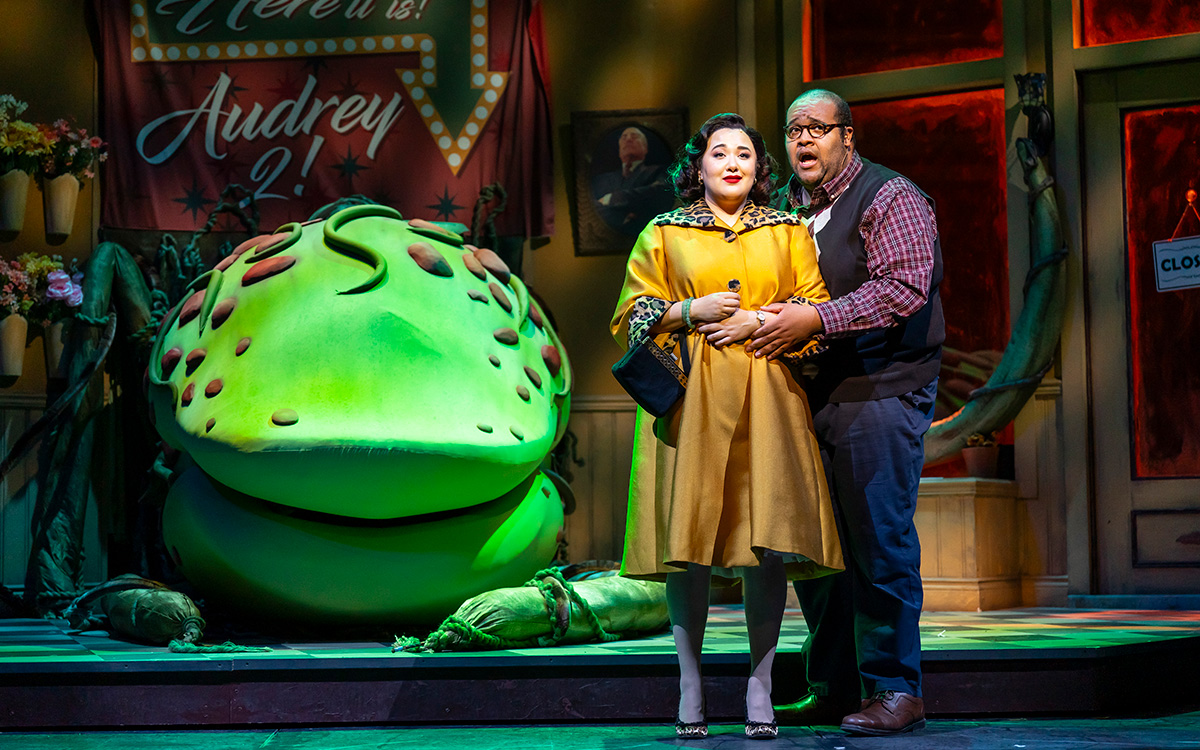
‘Little Shop of Horrors’
Through May 18
Ford’s Theatre
511 10th St., N.W.
$33-$95
Fords.org
Ever since premiering off-Broadway in 1982, “Little Shop of Horrors” has drawn a devoted following of avid audiences as well as performers eager to act in the show. Now playing at Ford’s Theatre, the doo-wop, dark comedy features a terrific cast including a wildly talented pair of local queer actors who’ve longed to appear in the show since they were kids.
Set in the urban 1960s, Alan Menken and Howard Ashman’s hit show with a terrific score follows the wacky rise of Seymour, a nebbishy florist in a Skid Row shop who changes his fortunes by unintentionally marketing an exotic, human eating plant.
Chani Wereley, 28, who plays Seymour’s love interest Audrey, a hyper femme downtowner with an edge, has had her on eye the role for years. Wereley says, “Audrey’s been around the block more than once, but I approach her as a person who moves through the world with love and hope.”
The queer D.C. native adds, “On long trips to visit family in Canada or Florida, the first thing we’d do is pop a ‘Little Shop of Horrors’ video [film version] into the car’s VHS player. I’ve watched is so many times, I could quote the whole movie to you.”
After auditioning to play Audrey in director Kevin S. McAllister’s production at Ford’s, Wereley never thought she’d book the part, and when they said she got it, she cried.
Similarly, Tobias A. Young, 34, the pansexual actor who voices the part of the bloodthirsty plant affectionately dubbed Audrey II, explains his intense interest in the work: “I started watching the film in ’86. Growing up as a little gay boy in Calvert County, Md., I wanted to be blonde Audrey [played by Ellen Green in the movie]. I didn’t know much about musicals at the time, but I was absorbed.”
When asked by Ford’s to play the voracious plant Audrey II without auditioning, his reply was an unhesitant “yes.”
Voicing a role requires Young to sing from backstage in a black box rigged with monitors and a mixing board. He says, “people ask if I’m singing from inside of the ever-growing, scary plant. No, I’m not, and that’s fine. But let’s face it, actors love to be seen on stage, but I don’t feel entirely unseen as Audrey II.”
He’s worked hard and successfully with formidable puppeteers Ryan Sellers and Jay Frisby to bring parts of himself to the carnivorous plant — his sassiness, own movements, and even a tilt of his head; their efforts have drawn the actual Young into the show.
Both Wereley and Young possess gorgeous, emotive voices as evidenced by Wereley’s striking rendition of Audrey’s “Suddenly Seymour,” and Young’s soulful “Feed Me (Git It).” Additionally, both actors are also big on queer representation in theater.
When her young pals were listening to Britney Spears, Wereley was dancing to retro tunes like “Mashed Potato Time,” and her favorite song to this day, the Shirelle’s girl group anthem “Will You Still Love Me Tomorrow.” As Audrey, Wereley eschews the character’s usual platinum hair for a bouncy brunette, cherry-streaked wig, tight pencil skirts, swing coats, and her very own half-sleeve tattoo.
“It’s important for people to see themselves on stage,” she says. “Seeing me or someone like me is inherently interesting. Being that person on Instagram or with the institution, cast, or audiences is meaningful. It’s important.”
In 2011, a couple years after finishing high school, Young landed a part in “Dream Girls” at Toby’s Dinner Theatre, and he’s been working professionally ever since. Growing up, he didn’t see a lot of himself – Black and queer – on social media. He now wants to be open and honest for those out there who might not feel seen, he says
An introvert who lets everything loose on the stage, Young says, “theater is a safe space for queer people. That’s the first place we feel safe, particularly in school. And this is why we need theaters in schools, now more than ever.”
He adds, “What’s great about Ford’s is its surprises, especially when they switch up casting. It’s meaningful to see the shows you love, but why not see them with a twist? Using unexpected actors and incorporating queer people just makes it that much better.”
-

 Africa4 days ago
Africa4 days agoCongolese lawmaker introduces anti-homosexuality bill
-

 District of Columbia21 hours ago
District of Columbia21 hours agoReenactment of first gay rights picket at White House draws interest of tourists
-

 World4 days ago
World4 days agoOut in the World: LGBTQ news from Europe and Asia
-

 Arizona1 day ago
Arizona1 day agoAriz. governor vetoes anti-transgender, Ten Commandments bill

